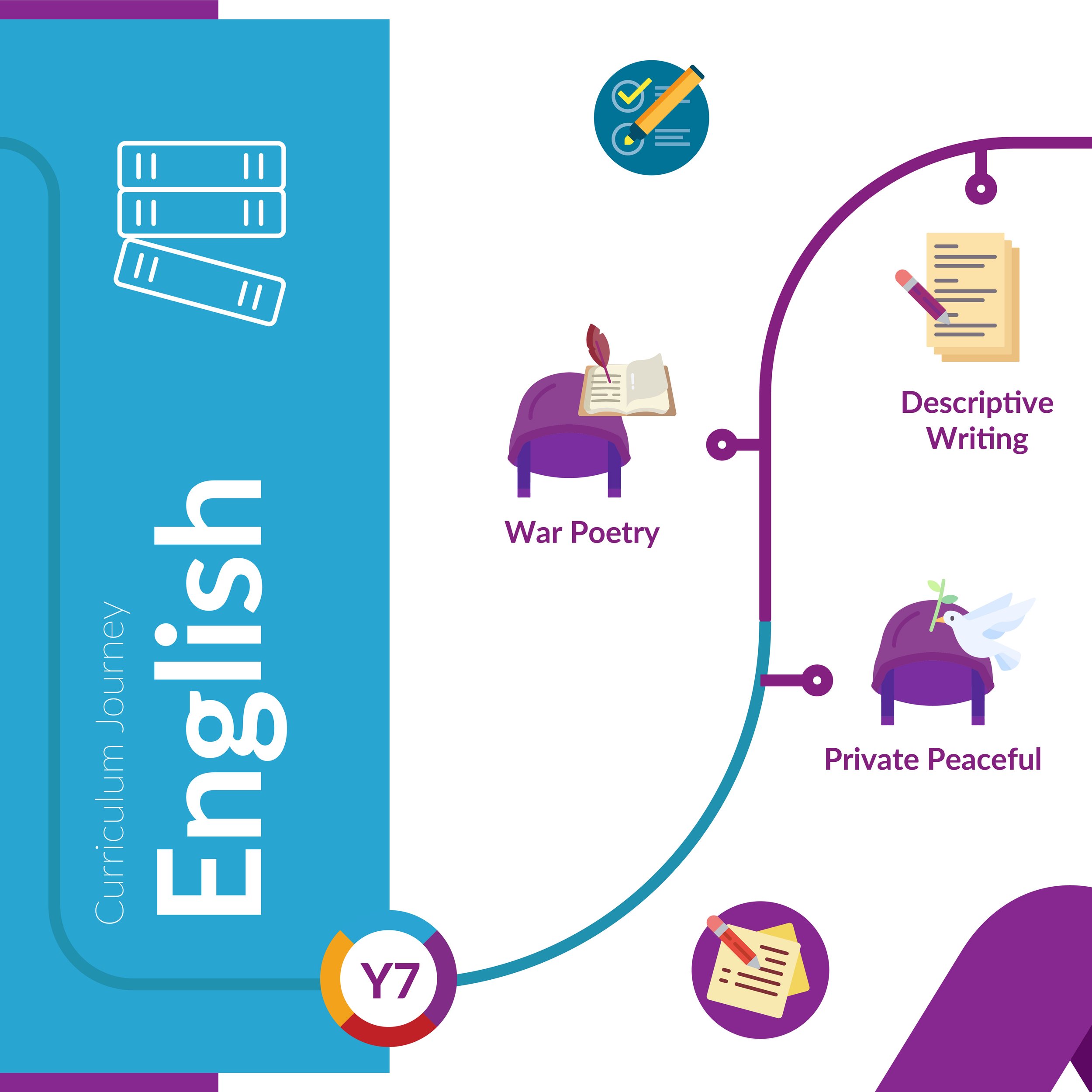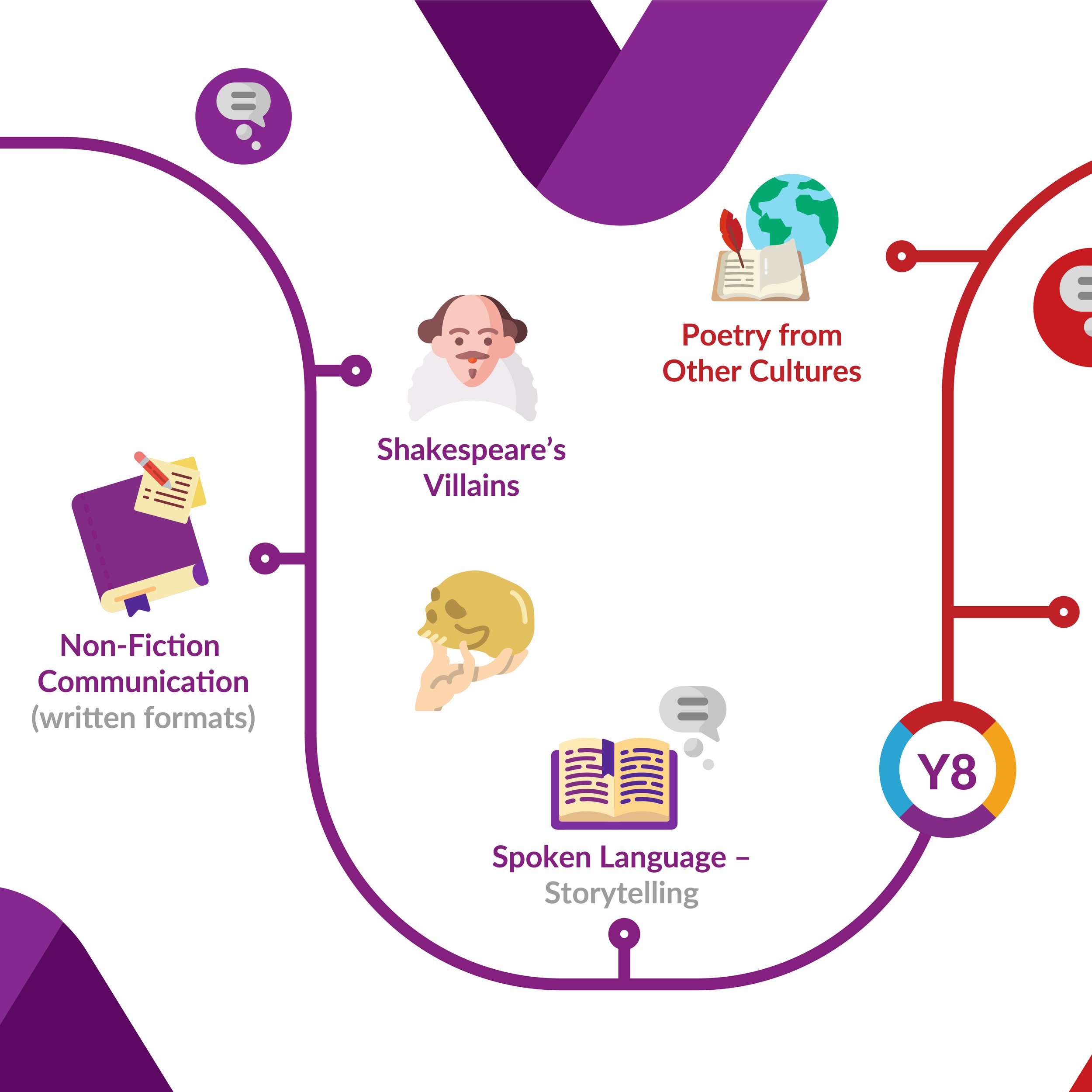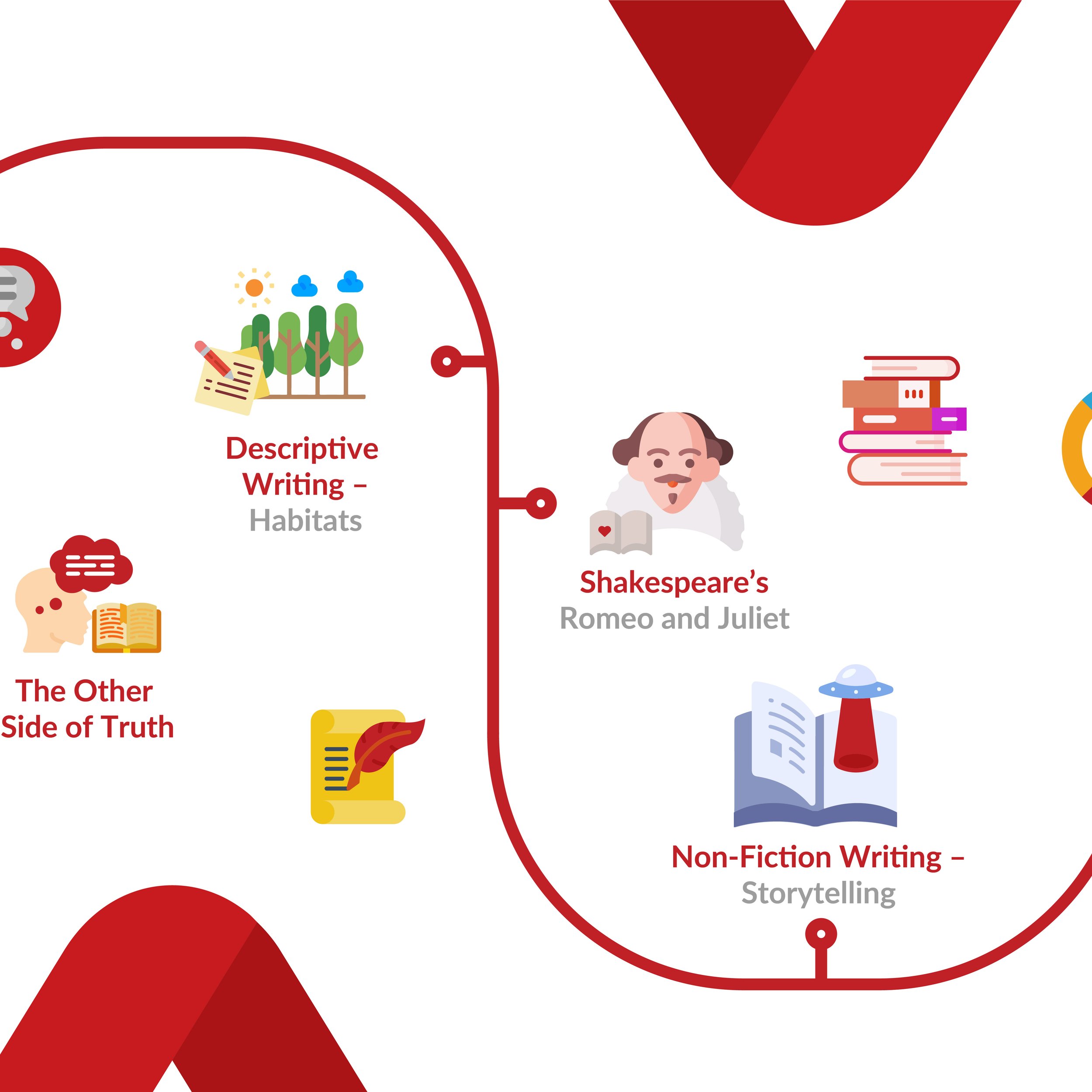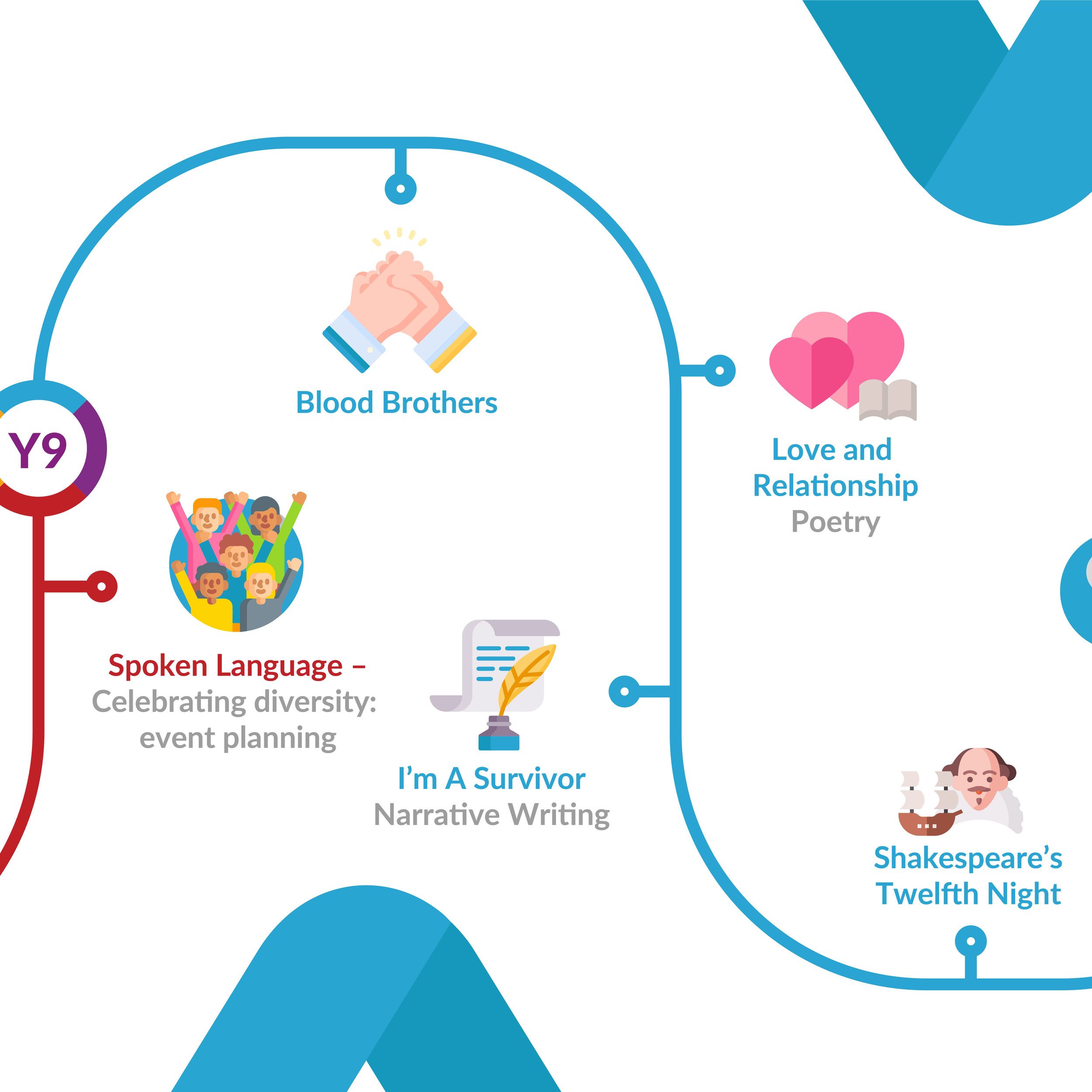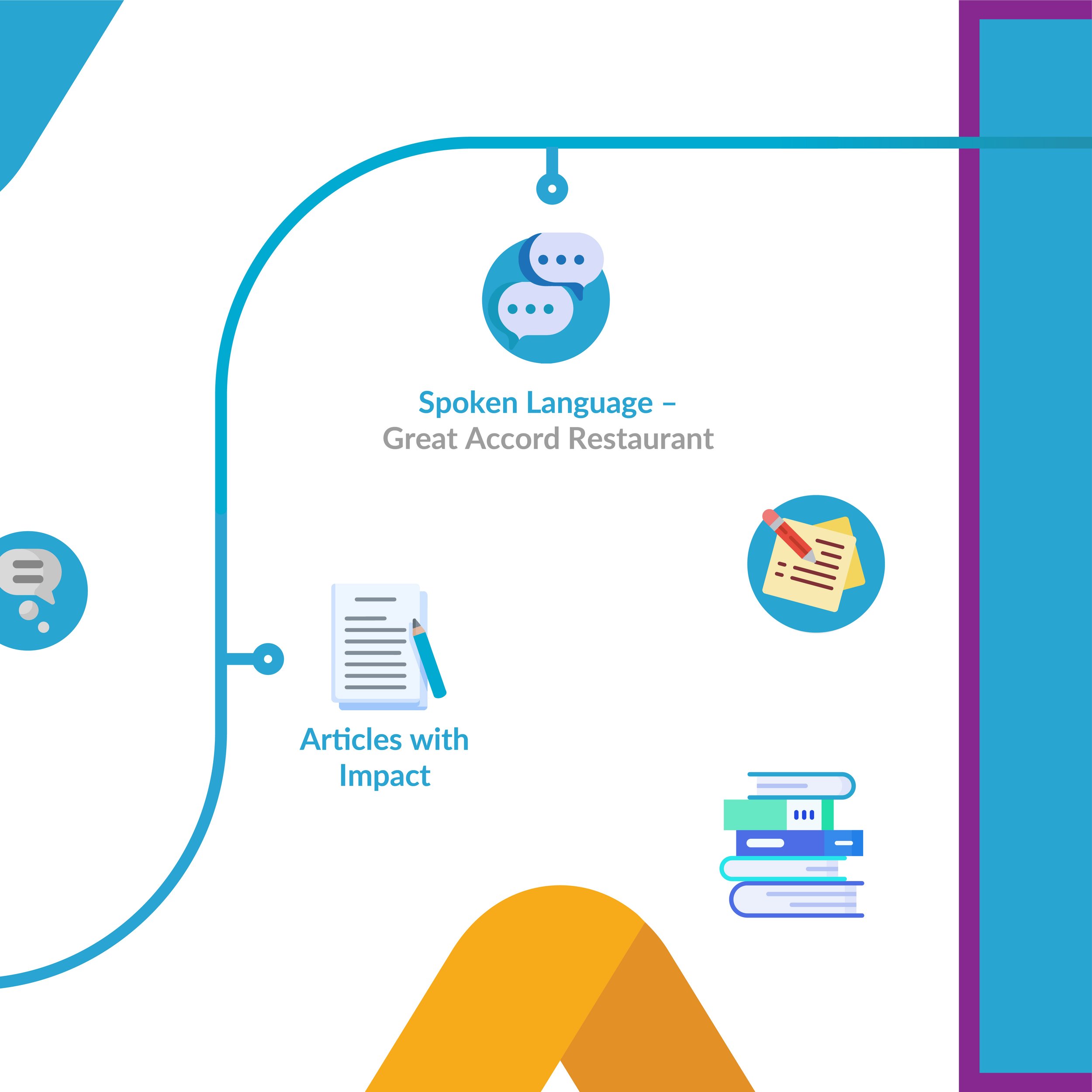
English
Year 9
Half Term 1
Whole Novel Study: Blood Brothers
-
Your child will read the full play, Blood Brothers by Willy Russell. It is centred around Mickey and Edward, twins who are separated at birth, and how their different upbringings affect their adult lives.
This unit introduces students to the idea of themes and how to study a modern text. It focuses on a number of key themes:
Social Class
Nature v Nurture
Superstition
Your child will study the plot and characters in order to be able to build on character and plot analysis skills from KS2 and KS3 to create a thoughtful and perceptive response to modern prose. They will develop their ability to write using PEZEL style paragraphs (please see PEZEL in parental strategies support link).
Your child will also be assessed on their spelling, punctuation, vocabulary and inference skills.
-
The ideas pupils will understand and the words they will be able to use.
Words related to plays: audience, aside, character, dramatic irony, playwright, stage directions, narrator.
Words related to language: dialect, colloquialism, slang.
Words related to key themes: religion, childhood, adolescence, adulthood, tragedy.
Others: connotations, implicit, explicit, inference.
-
Encourage your child to re-read the play.
Discussions surrounding family life and different upbringings.
Discussions about life in the 1960s (inc. Thatcherism).
Blood Brothers is also regularly shown at local theatres.
In the Teams file page, all lessons are uploaded alongside a copy of they text and/or key extracts.
-
Half Term 2
Poetry: Love and Relationships
-
Students will be introduced to a broader range of poetic content, exploring a range of writing forms, themes and skills.
They will have the opportunity to learn about various relationships and types of love.
They will explore different types of poets through modern and classic styles from a variety of backgrounds.
This will add variety to the intellectual capital the students have already built so far. -
The ideas pupils will understand and the words they will be able to use.
Metaphor, Simile, Personification, imagery, alliteration, rhyme, rhythm, verse, tone, perspective, symbolism, theme, context, analysis, interpretation, form, structure, stanza.
-
You can support your child by reading and discussing the experiences and viewpoints of the different poets they have explored.
Use the news and current affairs to discuss prevalent attitudes and policies to diverse races, ethnicities, faiths and beliefs.
Keep up to date with what your child has been learning through the class Teams channel and Sharepoint where lessons and materials will be posted.
-
Half Term 3
Survival
-
This topic gives students the opportunity to develop their creative writing through the backdrop of real-life events (with a focus on survival) and fictional stories.
It will allow them to improve their writing skills, as well as focus on decision making and being able to justify their ability to provide rationale for their reasons.
Our aim for this scheme of work is to encourage your child to think about real life situations in more depth, and to develop their narrative writing through inspiration.They will be marked on:
How well they can communicate their ideas.
How they delve into their imaginative skills.
How they use a range of language devices (similes/metaphors/personification etc).
How they use grammatical features.
Their use of vocabulary and the range of sentence structures that they use.
-
The ideas pupils will understand and the words they will be able to use.
Survival
Figurative
Imaginative
Narrative
Descriptive
Metaphorical
Emotive language
Words that link to methods they would use:
Personification, sibilance, alliteration, metaphor, simile, irony, juxtaposition, and alliteration. -
Encourage them to read fiction at home. This has significant benefits for developing your child’s reading age and will allow for them to refine their own writing skills by looking at different examples of descriptions and narratives.
Discuss complex subjects and survival stories with your child to help them expand on their knowledge of the world.
All of the PowerPoints and resources we do in each lesson are available on Teams for them.
-
Half Term 4
Shakespeare: Twelfth Night
-
Your child will read the full play, Twelfth Night by William Shakespeare. The fast-paced romantic comedy with several interwoven plots of romance, mistaken identities and practical jokes. Separated from her twin brother Sebastian in a shipwreck, Viola disguises herself as a boy, calls herself Cesario, and becomes a servant to the Duke Orsino.
This unit builds on analytical skills learnt at in year 7 and 8. Your child will study will gain a broad understanding of plot, character and context alongside the ability to develop an analytical approach when writing extended written responses. They will develop their ability to write using PEZEL style paragraphs (please see PEZEL in parental strategies support link).
In this unit, there are also marks available for spelling, punctuation and vocabulary.
-
The ideas pupils will understand and the words they will be able to use.
Shakespearian, desire, love, context, connotations, gender, class, appearance/reality, ambition, loss, prose, verse, imagery, tone, comedy, perspective, and characterisation.
-
Encourage your child to read ahead so that they are well prepared for our class discussion. They should use one colour pen to make notes about the plot, summarising what is happening and making notes about the meaning of any difficult phrases or images. They should use a different colour to make notes on the ways Shakespeare uses language and structure for effect.
Encourage your child to watch the modern adaptation called ‘She’s the man’. Suggest that your child watches a good film version of the play to help them with their understanding of the play. If possible, watch it with your child and discuss the director’s decisions with them. What is the effect of the staging? What do they think about the ways particular lines are delivered, or the presentation of key characters?
-
A website designed to help your child to understand the main ideas, plot, characters and key quotations.
Half Term 5
Oracy: Non-Fiction Transactional Writing: Impactful Articles and Influential Speakers
-
During this unit students will develop their understanding of how articles that have changed and impacted the world we live in.
This unit builds on pupils’ cultural capital and develops an appreciation of lesser-known figures in history.
With a predominant focus on transactional writing, the unit will allow students to understand how language techniques are used in a historical context, which they can then apply to their own persuasive writing. -
The ideas pupils will understand and the words they will be able to use.
Influential, racism, suffrage, diversity, persuade, stereotypes, important, equality, differences, dedication, sacrifice, freedom, injustice, tolerance, argument, justify, context, purpose, format, comparison, inspirational.
-
You can support your child by discussing historical figures that we will study, such as Martha Gellhorn, Matin Luther King Jr, Mary Wollstonecraft, Germain Greer, and Alan Turing.
Ask your son/ daughter about their opinions of these people and how they think they have influenced the world that we live in.
Encourage your child to read local and national newspapers to broaden their understanding of the vocabulary used in articles as well as developing their understanding of current affairs.
Keep up to date with what your child has been learning through the class Teams channel and SharePoint where lessons and materials will be posted.
-
Half Term 6
Oracy: Great Accord Restaurant
-
During this scheme of work, students will develop their oracy skills through creating and developing their own restaurant. They will have the opportunity to learn integral, transferrable skills for adulthood like teamwork, presentation skills and articulation of speech.
By the end of the half term, they will present their restaurant innovation to the rest of the class in a professional presentation style encompassing the oracy skills they have learnt.
They will also have the opportunity to gain an understanding of marketing, financing and the restaurant world which will impact their cultural understanding of society. -
The ideas pupils will understand and the words they will be able to use,
Oracy, vision, marketing, advertisement, compromise, restaurateur, cohesive, innovation, mission statement, target audience, promotion, communications, articulate, annunciate, and fluency.
-
You can support your child by discussing favourite restaurants or restaurant types at home and encourage your child to speak fluently and in full sentences.
Use the news and current affairs to engage with restaurant reviews or openings to broaden their knowledge for the sector.
Support your child by asking them to practice presenting their restaurant to you. You can then encourage them to make eye-contact, speak clearly and fluently and have positive body language.
Keep up to date with what your child has been learning through the class Teams channel and SharePoint where lessons and materials will be posted.
-
The Guardian has a dedicated page to reviews of restaurants.
A BBC website with tips on how to be a successful speaker and listener.
On YouTube, you could visit the TEDtalks channel which has an array of speeches covering many topics which could help inspire your child to speak clearly and with confidence.

